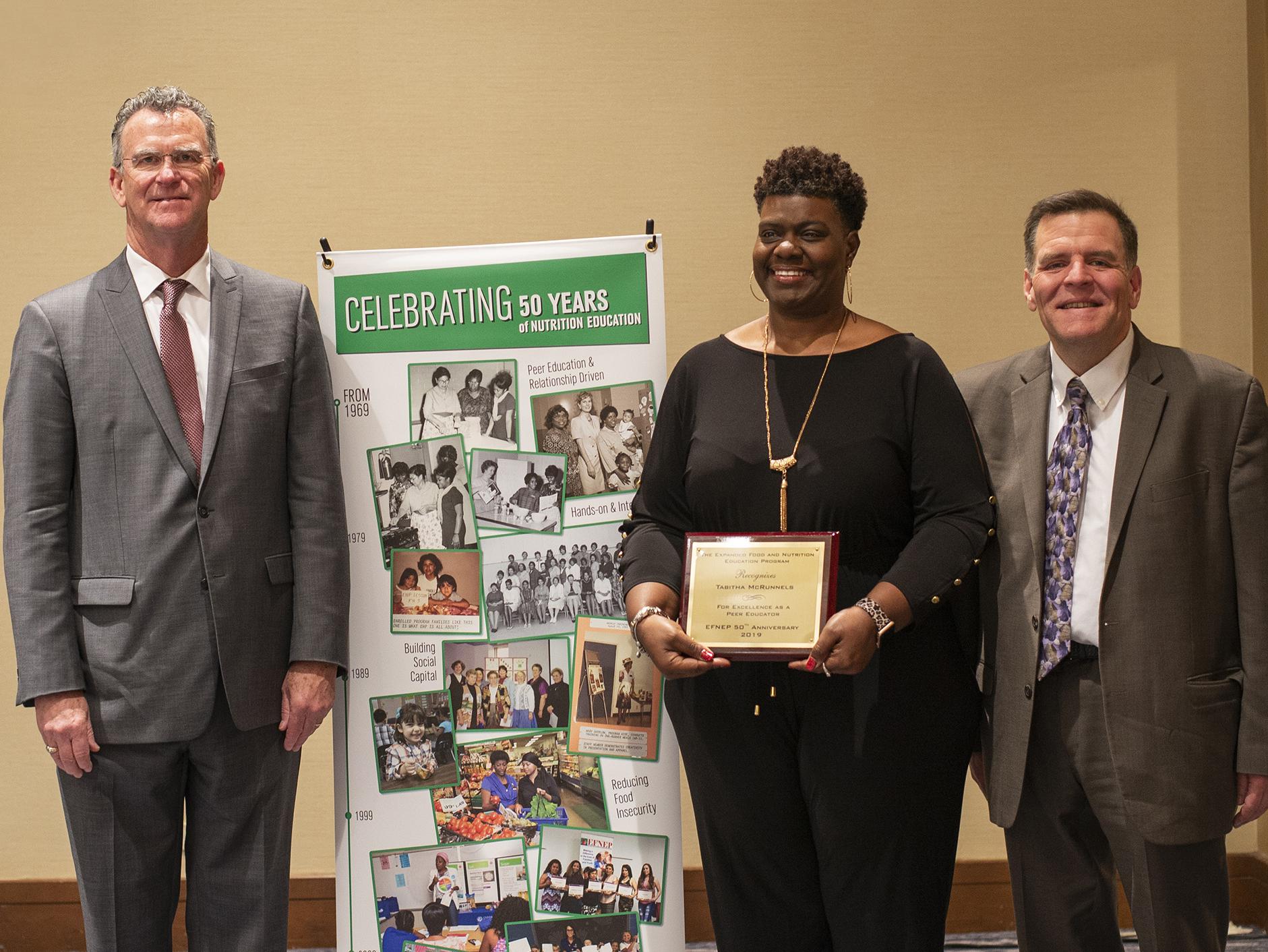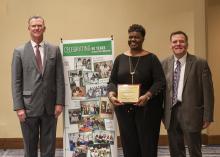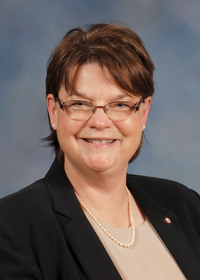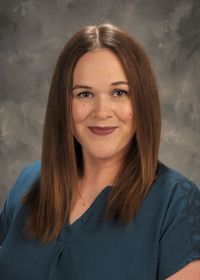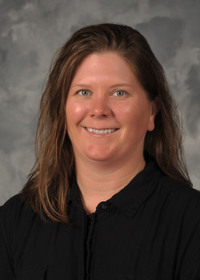Information Possibly Outdated
The information presented on this page was originally released on April 4, 2019. It may not be outdated, but please search our site for more current information. If you plan to quote or reference this information in a publication, please check with the Extension specialist or author before proceeding.
Lee County educator wins national award
TUPELO, Miss. -- Tabitha McRunnels' career spent teaching young children evolved into one devoted to teaching mothers how to feed their kids nutritious meals on limited funds.
McRunnels is a nutrition educator with the Expanded Food and Nutrition Education Program -- or EFNEP -- in Lee County. She is part of the Mississippi State University Extension Service, which administers EFNEP through the U.S. Department of Agriculture and the National Institute of Food and Agriculture.
In March, she received one of four national peer educator awards given to highlight contributions to EFNEP’s legacy of improving the lives of limited-resource families through nutrition education. EFNEP helps its clients acquire knowledge, skills, attitudes and behavior changes necessary for the nutritional well-being of the total family.
“The best part of my job is having the opportunity to change lives through my experience,” McRunnels said. “I have the awesome duty of teaching families how to prepare meals that are vital for their well-being, both physically and mentally.
“It gives me pleasure to bond with the families and influence their lives in a positive way,” she said.
McRunnels uses a variety of resources to teach children and young people, such as Show Me Nutrition. For adults, she offers Eating Smart, Being Active and Cooking Matters for Adults courses.
Gary Jackson, director of the MSU Extension Service, congratulated McRunnels on this honor.
“Tabitha’s success is due to her passion to help others through collaboration with community partners and colleagues to deliver courses,” Jackson said. “She continually shows creativity to improve program reach and effectiveness through her use of Facebook to recruit participants, and she is successful in achieving major improvements in nutritional status and well-being.”
Since 2007, McRunnels has provided nutrition education in Lee County. Courses typically are six weeks long, and she has taught an average of six of these each year. Class sizes are kept small and personal, usually about eight participants, the majority of whom are women.
“Most moms are the ones preparing the food and buying the groceries,” McRunnels said. “I feel like they make the biggest impact, since they are the ones who make the choices for their families.”
One trait each of her classes has in common is the hands-on component.
“In some classes, we literally get in the kitchen and cook, and in others, I prepare something healthy for them to try,” she said. “A lot of times, people say they want to try new things, but they don’t want to use their money to try something they may not like at home.”
Fruits and vegetables and physical activity are recurring themes in McRunnels’ classes.
“I push foods that are higher in nutritional value. Studies show Americans get plenty of protein and grain foods, but we’re not getting enough fruits and vegetables,” she said. “I teach alternative ways of preparing foods so they still taste good but are healthy.”
While McRunnels teaches some classes at the Lee County Extension office in Tupelo, she also goes wherever her clients are. Currently, she is teaching two classes in housing complexes. She teaches in churches and community centers, as well.
“I ask my students when they come back a week later after a class, what’s one thing you changed? Don’t try to do it all at one time. Take small steps, and make lifestyle changes,” she said.
Renee Matich, state EFNEP coordinator, nominated McRunnels for the National Excellence in EFNEP Award - Peer Educator.
“Tabitha is very successful at recruiting and inspiring her participants,” Matich said. “Over the past 11 years, she has consistently exceeded program benchmarks. For example, in 2018, she had a 98 percent graduation rate for adult classes, and 95 percent or more of her participants show improvement in key areas of diet quality, physical activity, food safety and food resource management.”
Matich said McRunnels often holds her classes in the evenings, as that is when her students can meet. She challenges her participants to commit to be fit, uses a cell phone app to remind students of upcoming classes, and includes physical activity and movement in all her classes.

